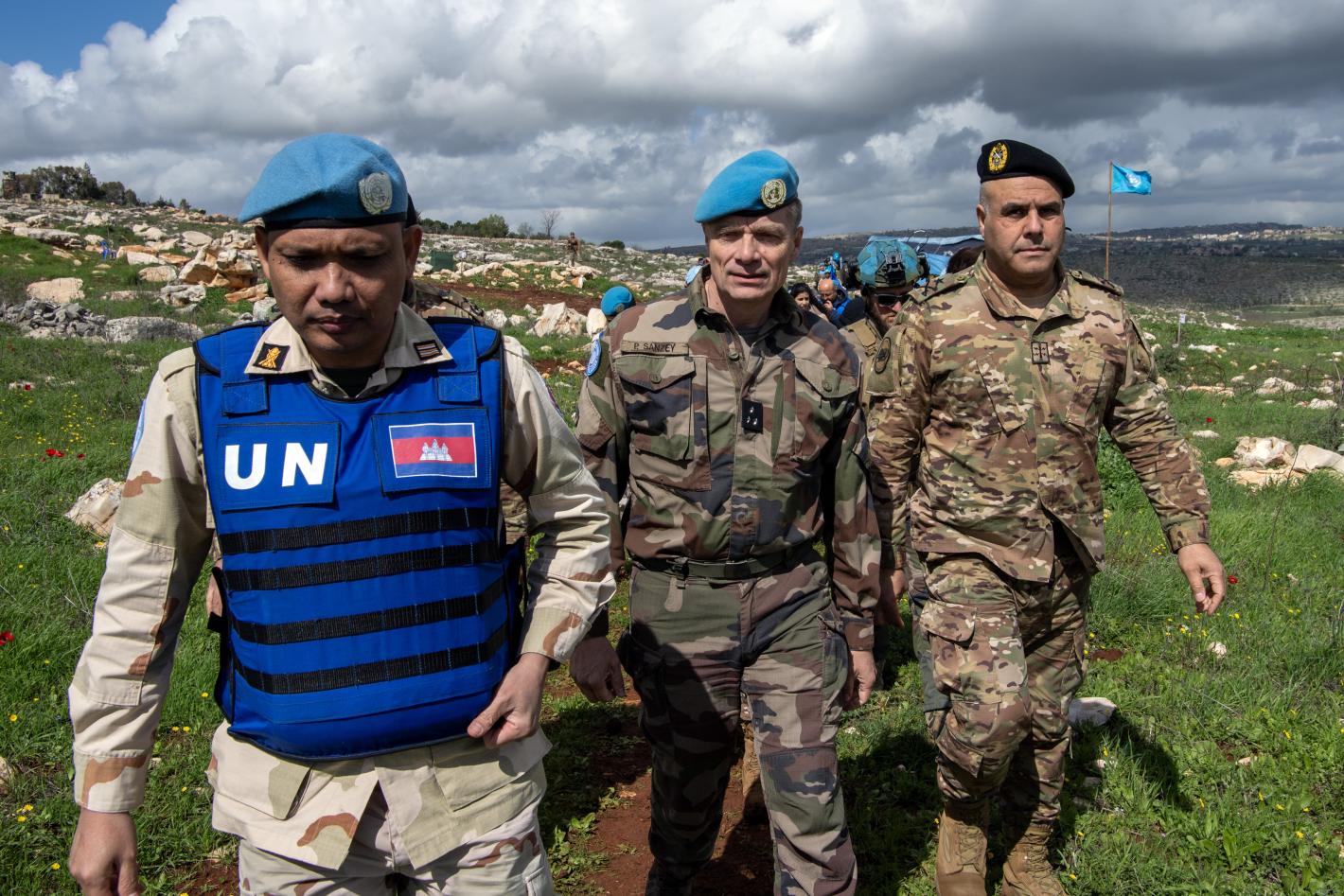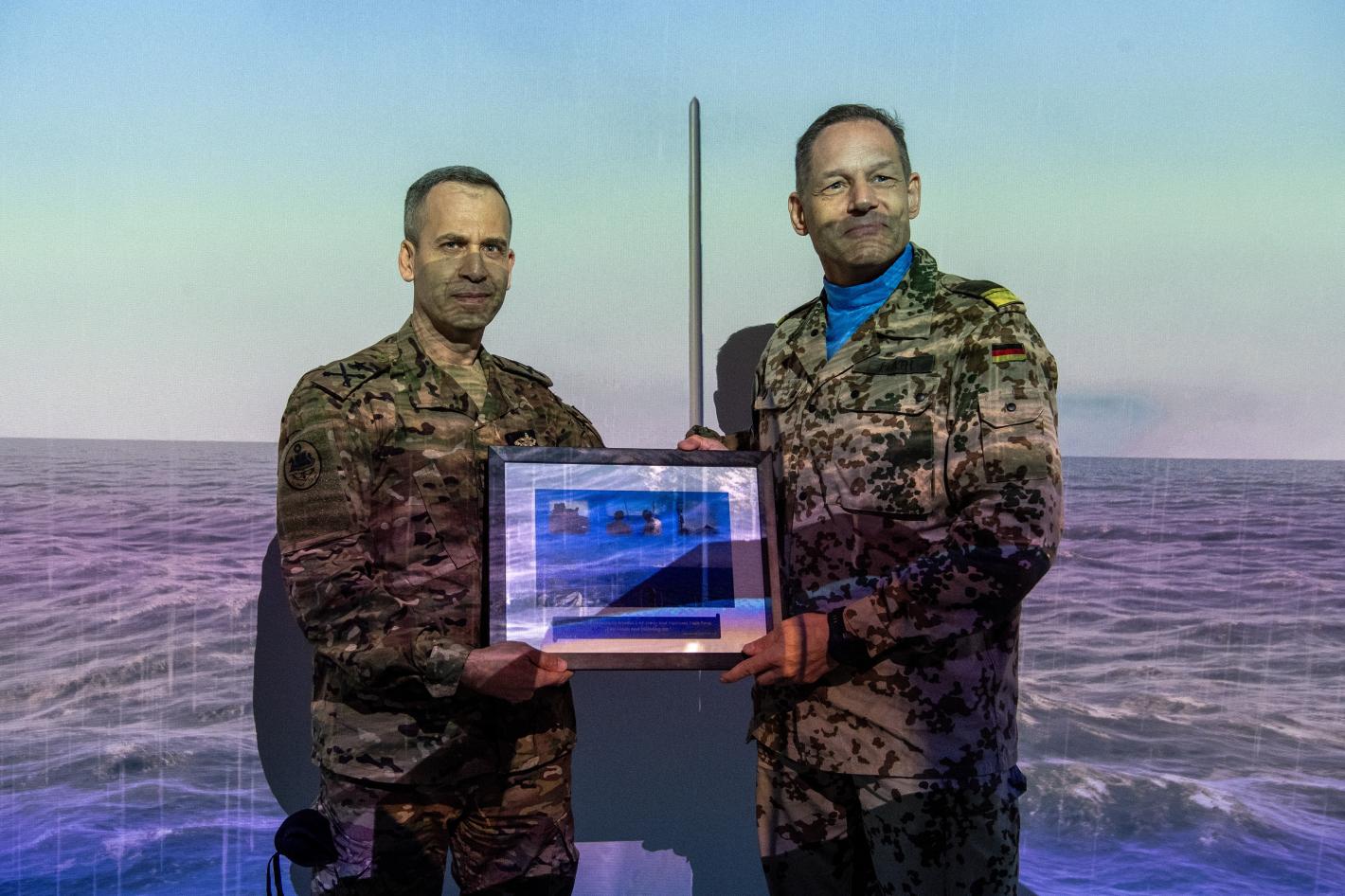14 December 2010 - UNIFIL took another step today towards implementation of the Joint DPKO-UNIFIL Technical Review recommendations with the withdrawal of Main Battle Tanks (Leclerc) from its Quick Reaction Force, to be replaced by lighter armoured presence including anti-tank capabilities. This is in line with UNIFIL's priority to enhance mobility and quick-reaction capability while minimizing disturbance to the local population or damage to roads and other infrastructure caused by heavy tracked vehicles.
The force reconfiguration now underway focuses, among other things, on replacing tracked vehicles with more road friendly wheeled vehicles that are also better suited for the terrain in southern Lebanon. Accordingly, in September 2010 UNIFIL's French battalion commenced phased replacement of its tracked Armoured Personnel Carriers (APCs) when 17 'AMX 10 P' tracked APCs were replaced with 14 wheeled armoured infantry vehicles (VBCI).
These forward-looking adjustments to UNIFIL's Force structure are being carried out in close coordination with the Lebanese Armed Forces (LAF).
Background information:
The Joint Technical Review of UNIFIL's operational capacity was undertaken during 2009 by UNIFIL and the UN Department of Peacekeeping Operations (DPKO) in consultation with member states including the Government of Lebanon. The resulting recommendations to re-adjust the force structure and assets of UNIFIL for better addressing the requirements of its mandated tasks while maintaining the current strength of its troops on the ground, was endorsed by the UN Security Council early this year and is now in the process of implementation.
As recommended by the Joint Technical Review, over the next six months, assets from the Quick Reaction Force and the French infantry battalion will merge to form the Force Commander's Reserve with operational responsibilities covering UNIFIL's entire area of operations. France will maintain its overall troop contribution to UNIFIL at the current level of around 1400 troops.
With the enhancement of UNIFIL's deployment and tasks under UN Security Council resolution 1701 (2006), the Quick Reaction Force of UNIFIL was deployed with heavy armoured and artillery assets from France. Recognising the considerable progress achieved in implementation of UNIFIL's mandated tasks and changing circumstances on the ground, particularly with the deployment of the Lebanese Armed Forces (LAF) in the south, the Joint DPKO-UNIFIL Technical Review put forward recommendations to enhance UNIFIL's operational effectiveness by creating a more task-oriented, mobile and flexible force posture.
Pursuant to the recommendations of the Joint Technical Review, a regular strategic dialogue mechanism between UNIFIL and LAF has been established. This provides a framework for progressively correlating the respective capacities and operational activities of the two Forces towards gradual transition of responsibility from UNIFIL to the LAF in southern Lebanon and in Lebanese territorial waters in line with resolution 1701.
The ongoing restructuring of UNIFIL envisages no change in the overall strength of the Force that will remain at the existing level. UNIFIL currently has about 12,000 troops on land and at sea, as well as about 1,000 national and international civilian staff serving in the Mission.






